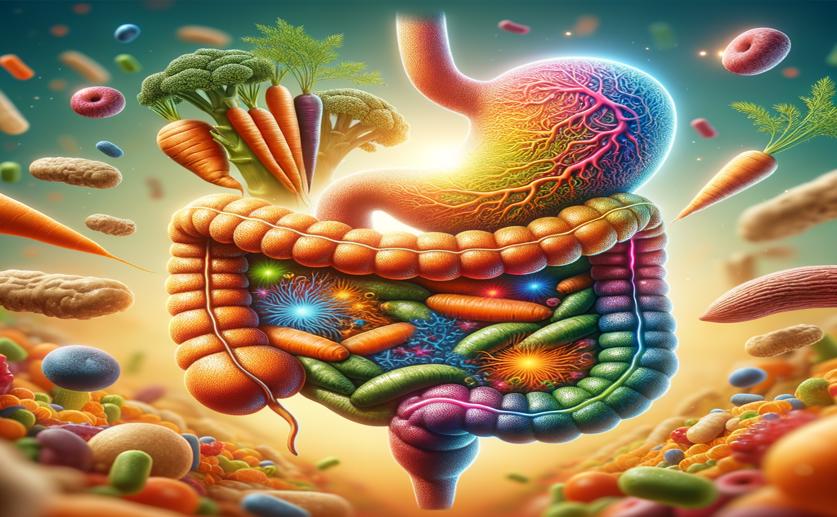
Vitamin A Carotenoids Boost Gut Microbial Diversity from a Healthy Diet
Greg Howard
9th August, 2024

Image Source: Natural Science News, 2024
Key Findings
- The study by the University of Nottingham found that vitamin A-related metabolites, especially carotenoids, are linked to a diverse and healthy gut microbiome
- Carotenoid compounds were positively associated with beneficial gut bacteria, while retinol showed no specific microbial associations
- A healthy diet rich in carotenoids can enhance gut microbiome diversity, contributing to better overall health
References
Main Study
1) Vitamin A carotenoids, but not retinoids, mediate the impact of a healthy diet on gut microbial diversity.
Published 7th August, 2024
https://doi.org/10.1186/s12916-024-03543-4
Related Studies
2) Vitamin A and vitamin D regulate the microbial complexity, barrier function, and the mucosal immune responses to ensure intestinal homeostasis.
3) Vitamin A as an anti-inflammatory agent.
Journal: The Proceedings of the Nutrition Society, Issue: Vol 61, Issue 3, Aug 2002
4) The interplay between host immune cells and gut microbiota in chronic inflammatory diseases.



 21st June, 2024 | Jenn Hoskins
21st June, 2024 | Jenn Hoskins